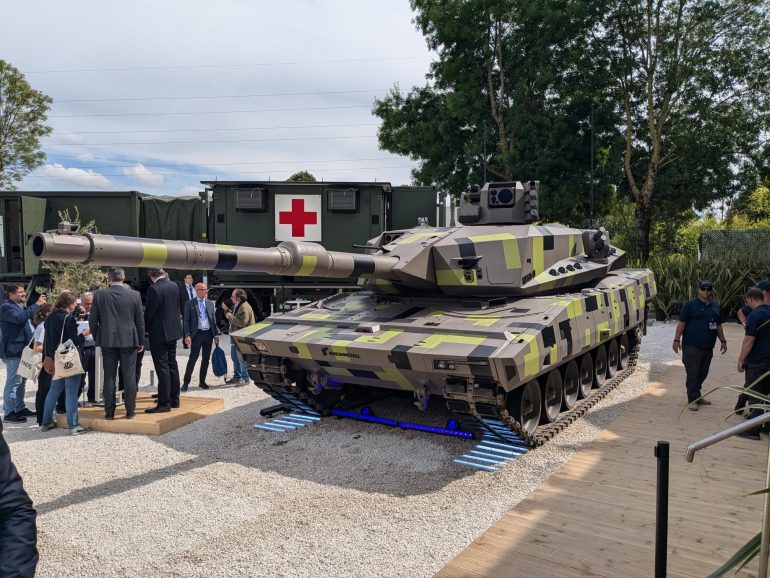- Eurosatory 2024 showcased a surge in AI-enabled solutions by startups and major defence firms.
- Safran launched the Advanced Cognitive Engine (ACE) to enhance situational awareness and decision support in defence products.
- Command AI introduced AI systems for mission planning and command execution, aimed at improving operational readiness.
- MBDA integrated Ground Warden into Akeron systems for enhanced target acquisition and operational efficiency.
- Challenges remain in achieving full autonomy and ensuring trust in AI systems across defence applications.
- Thales and Numalis are developing solutions to address transparency and reliability concerns in AI.
Main AI News:
At Eurosatory 2024 in Paris, the prevalence of AI-enabled solutions showcased by both startups and major defence companies highlighted both the potential benefits and the significant challenges related to trust in their adoption. Artificial intelligence has firmly established itself in the defence industry, with AI-driven innovations widely displayed and discussed.
Safran’s announcement of the Advanced Cognitive Engine (ACE) system marked a significant advancement, aiming to integrate AI capabilities across all Safran Electronics & Defence products. This system promises to enhance situational awareness, provide critical decision support, and alleviate cognitive burdens for field forces amidst increasing volumes of sensor data and ongoing challenges in personnel recruitment and retention.
Command AI, a French startup, presented two pioneering AI-powered systems designed to enhance mission planning, command execution, and operational readiness through advanced training capabilities. These systems, slated for testing under France’s Agence de l’innovation de défense, demonstrate Command AI’s commitment to innovation in both land and naval operations. Additionally, developments are underway on a wargaming module to further bolster military preparedness.
MBDA showcased its integration of the Ground Warden into the Akeron family of weapon systems, underscoring advancements in target acquisition and operational effectiveness across diverse environments. Ground Warden utilizes AI to track and engage threats in adverse weather conditions, supporting operators in targeting both stationary and moving objects with heightened precision. Moreover, ongoing enhancements to the Akeron MP system, including a specialized naval mode, illustrate MBDA’s proactive approach to refining AI applications in defence.
Despite these strides, challenges persist regarding the full autonomy and trustworthiness of AI systems. Industry leaders like Thales are addressing these concerns through initiatives such as SwarmMaster, enabling operators to define and manage the autonomy of their systems within specified parameters. Similarly, Numalis, with its Saimple platform, focuses on validating AI algorithms against robust standards, ensuring reliability and explainability throughout their development and deployment phases.
Numalis collaborates closely with industry giants like Safran and MBDA to advance AI technologies that meet stringent criteria for transparency and reliability. These collaborative efforts underscore a collective industry drive toward achieving trustworthy AI solutions that can withstand rigorous validation processes, laying the groundwork for broader adoption in the medium to long term.
Conclusion:
The advancements showcased at Eurosatory 2024 underscore AI’s pivotal role in revolutionizing defence operations. The integration of AI-driven solutions by industry leaders like Safran and MBDA reflects a strategic shift towards enhancing operational capabilities and reducing cognitive burdens on military personnel. However, the journey towards fully autonomous AI systems requires addressing critical challenges around data reliability, transparency, and trust, which will shape future market dynamics in defence technology.

